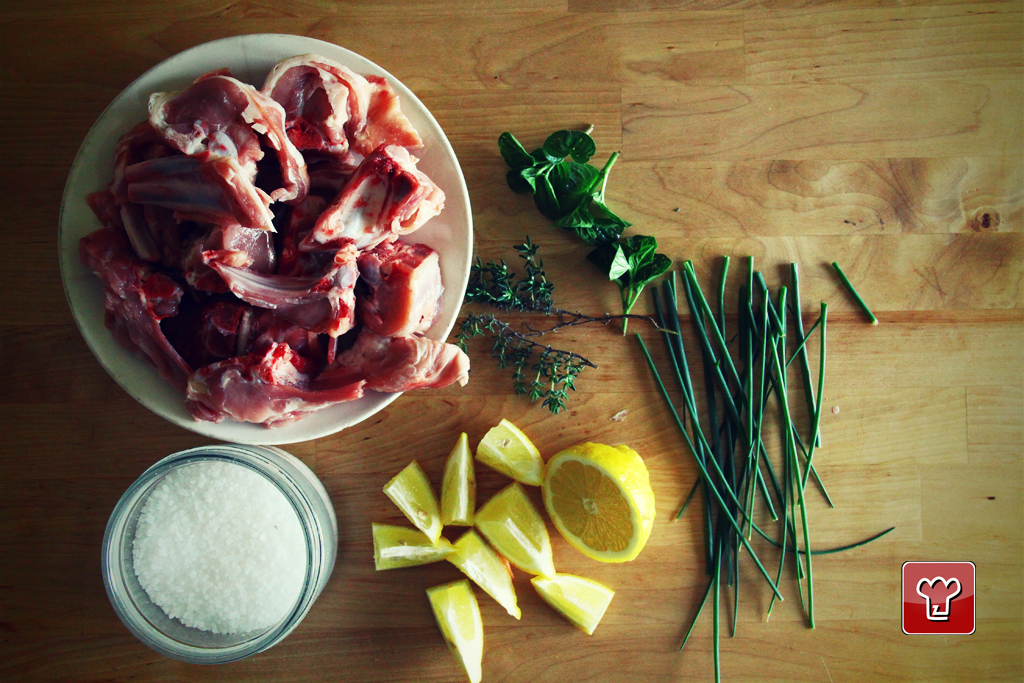Lamb chops marinated with lemon and mint
Do you fancy some meat today? You could certainly choose between all kinds, from the finest beef to the cheapest pork. But today’s recipe is really superb if you’re a fan of the meat in question. It’s a wonderful main course of lamb chops marinated with lemon and mint: a tasty and fragrant dish, perfect, as I said, for those who like lamb and want to try something a little out of the ordinary. Lamb, because of a flavour that is sometimes referred to as "gamey", responds well to marinating. The length of time you marinade can range from a minimum of 15 minutes up to a maximum of overnight, depending on the intensity of the flavours that you want to infuse. Follow our chef’s recipe and you will have some absolutely mouth-watering lamb chops; serve with a simple salad and a glass of wine.
Ingredients

Send the recipe
Preparation
Cut the lemon into segments and squeeze the juice over the lamb, add the sea salt and mix everything well. Finely chop the mint, thyme and chives, add plenty of extra virgin olive oil and mix well. Allow it to marinate for 15 minutes. Heat a pan and brown the meat for 5 minutes over a high heat in a little oil. Serve the chops a little pink in the middle, accompanied by fresh seasonal vegetables.
Step by step
|
View the step by step
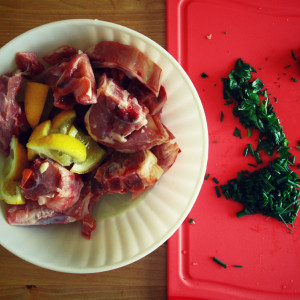
|
Cut half a lemon into segments and squeeze the juice over the lamb, add the salt and mix everything well together
|
|
View the step by step
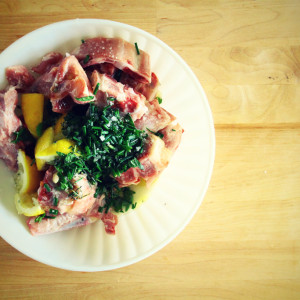
|
Finely chop the mint, the thyme and the chives, adding plenty of extra virgin olive oil. Leave to marinate for 15 minutes
|
|
View the step by step
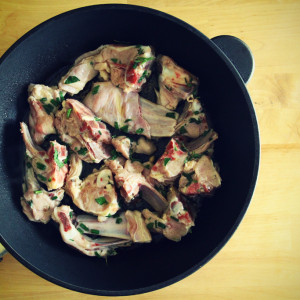
|
Brown the meat over a high heat for 5 minutes in some oil
|
|
View the step by step
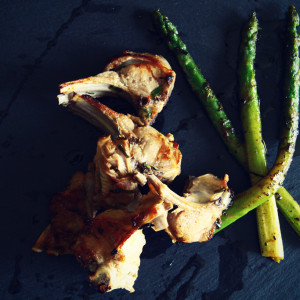
|
Serve the lamb chops a little pink in the middle, accompanied by some fresh seasonal vegetables
|




